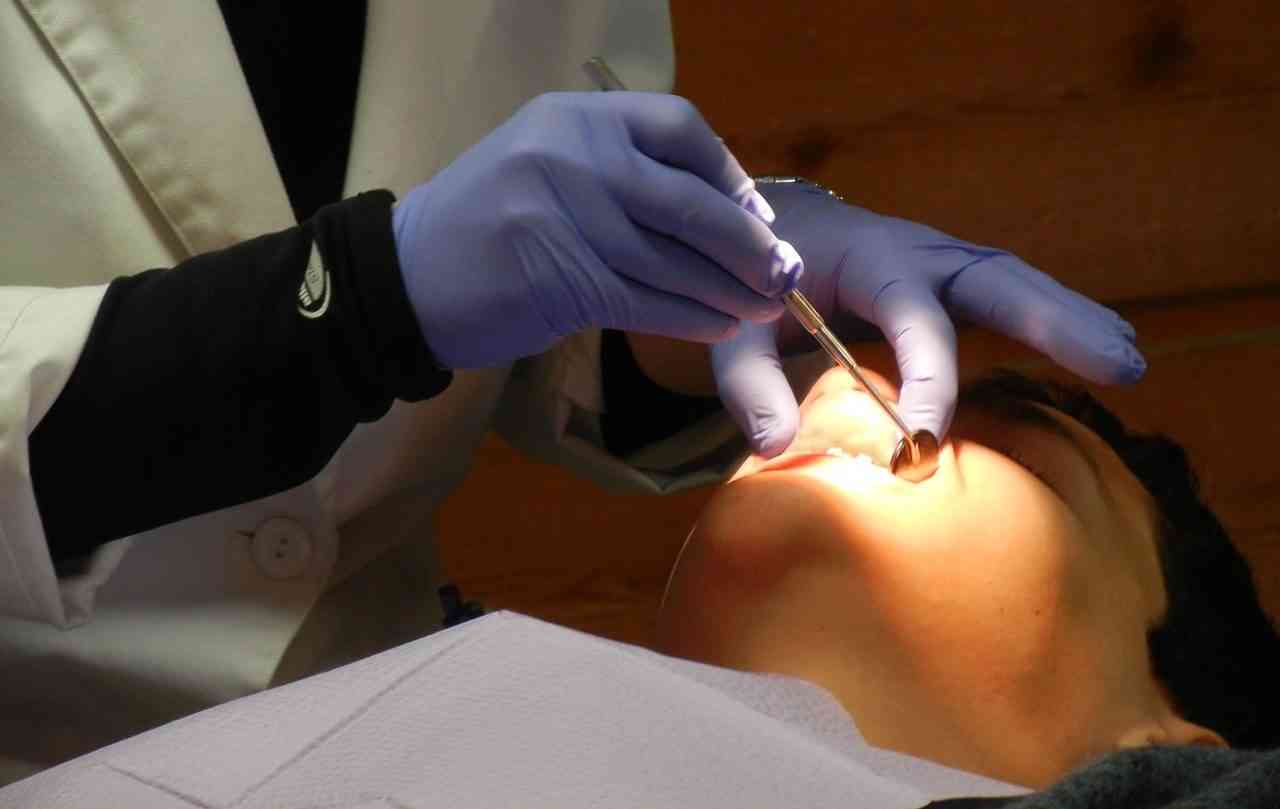
If you live with type 2 diabetes, you may not know it can affect your oral health — but it can. By understanding the link between diabetes and gum disease, you can learn what to do to preserve your teeth and gums.
Type 2 Diabetes Basics
Type 2 diabetes is a common chronic illness that occurs when the pancreas, an organ located behind your stomach, fails to produce enough insulin. This, in turn, affects your body’s ability to utilize blood sugar, or glucose, and convert it into energy.
Hyperglycemia, or high blood sugar, caused by diabetes cannot be cured entirely. However, it can be successfully managed through medication and diet. If left untreated, it can damage your nervous function, lead to kidney failure, and cause a stroke.
Diabetes can potentially damage your oral health as well. Here’s everything you need to know about type 2 diabetes and dental disease.
The Link Between Oral Health and Type 2 Diabetes
According to the American Diabetes Association, people with type 2 diabetes have a higher risk of developing gingivitis and gum disease.
Why?
According to the Most Popular Dentist in Dubai, diabetes can affect and decrease your body’s efficacy in fighting against gum infection-causing bacteria. Additionally, it can diminish your ability to control blood sugar, making you susceptible to periodontitis.
Type 2 diabetes is associated with an increased risk of thrush, a form of fungal infection. Uncontrolled blood sugar can also lower your mouth’s saliva production and cause a drier mouth. It can increase the likelihood of developing mouth ulcers and dental cavities.
Warning Signs of Dental Disease in People with Type 2 Diabetes
Gum diseases associated with diabetes don’t always cause prominent symptoms. Therefore, you need to make regular dentist appointments. If you have been experiencing the following symptoms, contact your dentist right away:
- Bleeding gums (which may occur while you are brushing or flossing your teeth).
- Chronic and persistent bad breath (even after you have brushed properly).
- Swollen or red gums (which occur without any external damage).
- Malocclusion (changes in the way our teeth seem to fit together).
- Permanent teeth that are beginning to feel loose.
According to the CDC, periodontal disease is common among people aged 30 or older. So, it’s best to visit your dentist as soon as possible if you’re diabetic.
How to Prevent Dental Disease If You Have Diabetes
Preventing any diabetes-related complication will require you to maintain optimal control over your blood sugar level. Notify your physician if you’ve seen an abnormality, even after following the right diet plan, insulin, and oral medication.
Apart from this, you should also:
- Take proper care of your teeth through regular flossing and brushing.
- Use warm water to wash your mouth and gums.
- Drink at least three to four liters of water to boost your saliva production.
Treatments for Diabetes-Related Dental Disease
Treatments for an oral health condition associated with type-2 diabetes depend on the illness and how severe it is. For example, periodontal disease can be cured with a medical procedure known as root planing and scaling. It is a type of deep cleaning method that can eliminate the tartar from below and above your gum lining.
In addition to this, your dental specialist might also prescribe antibiotic treatments. Finally, in the case of some rare instances where you have advanced periodontal disease, you will need gum surgery. Doing so can save you from the unfortunate fate of tooth loss.
When it comes to treating your diabetes, you should:
- Follow a healthy, sugar-free diet as recommended by your doctor.
- Avoid sweetened or fizzy drinks.
- Take properly prescribed medications.
Oral Health and Diabetes Can Go Together
With careful attention to your dental health and diabetes control, it’s possible to maintain healthy gums and teeth. Ensure that you are visiting your dentist regularly and disclosing the issues you’re experiencing. Talk to them about the medicine you are taking to manage your diabetes. This way, it will be easier for your doctor to diagnose your condition and provide appropriate treatment.
Please let us know in the comment section below if you have a question. Thank you for reading!
Follow me down the rabbit hole!
I'm Alice and I live with a dizzying assortment of invisible disabilities, including ADHD and fibromyalgia. I write to raise awareness and end the stigma surrounding mental and chronic illnesses of all kinds.
Dr. Wilson graduated from Rosalind Franklin University of Medicine and Science and completed her residency in Internal Medicine at Advocate Good Shepherd Hospital in Barrington, IL. Dr. Wilson specializes in providing culturally competent and trauma-informed care to patients with physical disabilities. In addition to her private practice, she works as a science communicator, teaching health literacy to middle school and high school students in her local school district.











